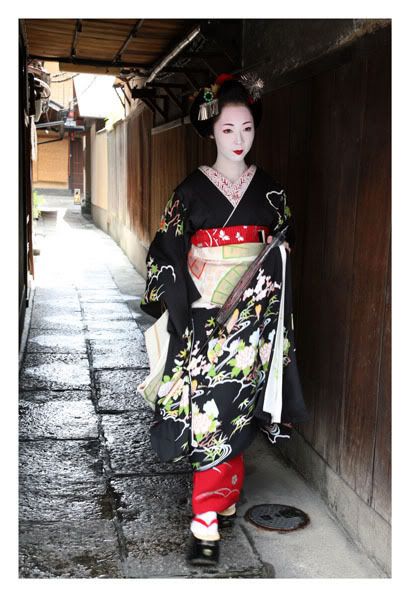
Kosen emerges from a narrow, covered alleyway as she returns to her okiya.
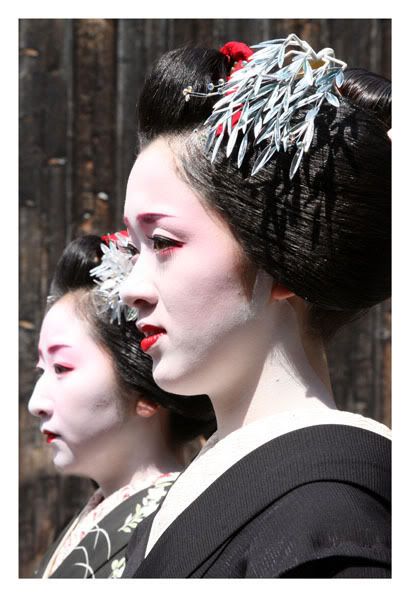
Kotoha and Yasuha headed back to their okiya after a long morning of visits beneath the brutal summer sun.
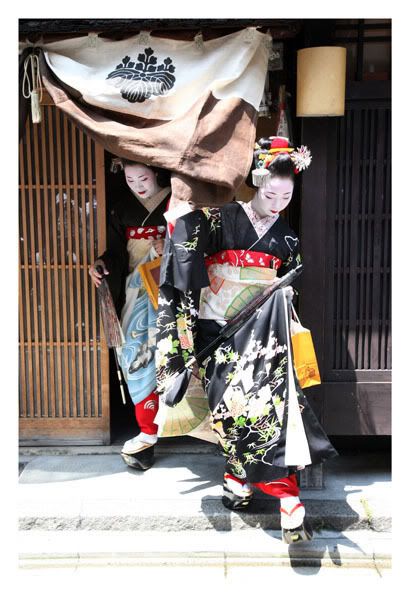
Kosen and Koyuki slip through a noren, carefully stepping into the street with her black laquered okobo. Kosen wears the typical susuki kanzashi ( Japanese Pampas Grass hair ornament).
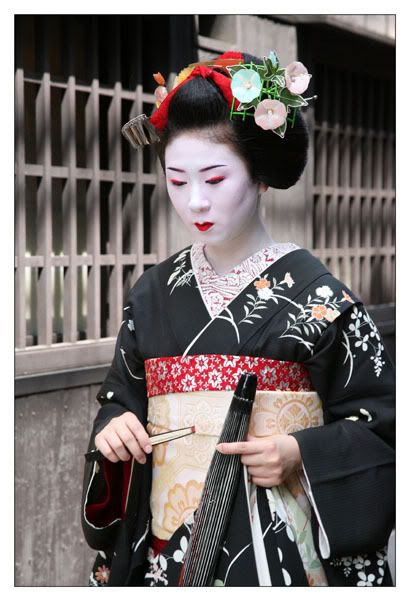
While many maiko wear kanzashi (hair ornaments) based on summer grasses, Mameteru wears a rare asagao, or Morning Glory, perfectly complimenting the flowery theme of her kimono.
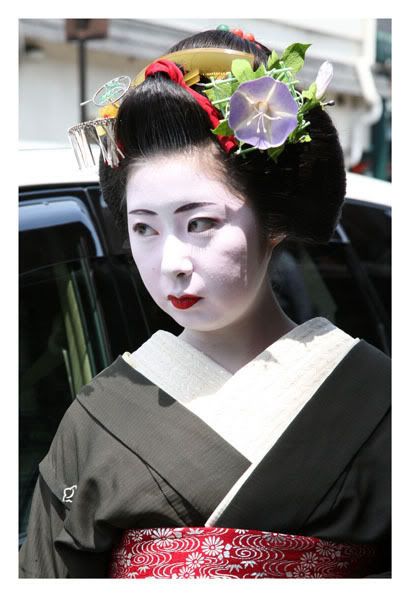
Teruyuki also wears the asagao, but as a senior maiko her hair is ornamented with only a single, large blossom.

Teruyuki also wears the asagao, but as a senior maiko her hair is ornamented with only a single, large blossom.
 Kotoha wears another rare kanzashi.
Kotoha wears another rare kanzashi.
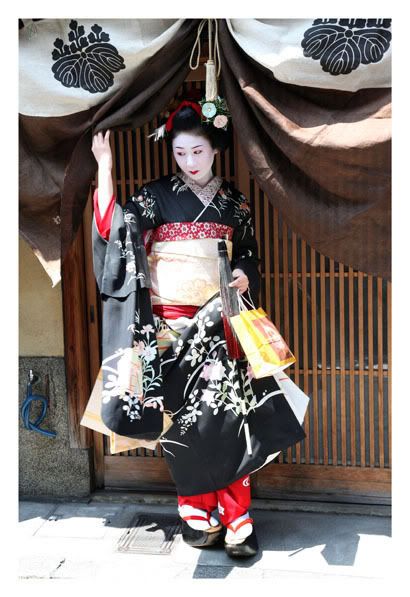
Mameteru lifts a festive noren as she leaves a teahouse.

Because it is a very formal occasion, maiko leave three tapered prongs of skin bare on their painted white necks, as opposed to the usual two. This is called sanbonashi, or "three legs". Lower ranking maiko wear their hair in the wareshinobu style, characterized by the mage, or top knot, woven through with a peice of silk and topped with a special ornament called a kanko dome.
 Senior maiko wear the Yakko Shimada hairstyle.
Senior maiko wear the Yakko Shimada hairstyle. The difference is easily observable, as seen above.
The difference is easily observable, as seen above.



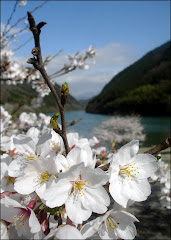

13 comments:
Wow, they're so beautiful. I can't even imagine the time it takes them to complete that look.
How do they keep their makeup intact in Kyoto's humid heat?
That's a really good question! How do they keep their makeup intact?
So beatiful ^^
The kimono, obi and kanzashi everything is so gorgeus.
I <3 their kanzashi... I wish we could buy those ones here, since the pampas grass and morning glory ones are UBERLY hard to make!
About the make-up: Before applying the white powder and water based paste they're famous for, they warm a small peice of wax-like oil called bintsuke abura in the palm of their hand. Their body heat makes it pliable, allowing them to apply it to their face, neck and back as a foundation. This helps the white paste and powder adhere to the skin. (^-^) I think that's their secret.
Melissa, do you have a closer shot of Kotoha's kanzashi that you could send me? That silver willow kanzashi is awesome, but it's hard to see the details since it's so shiny.I would really appreciate it!
Very good photos, Good blog :)
Look from Quebec Canada
http://www.wwg1.com
WWG :)
Sorry, Songbird. I don't have any closer shots than the ones I posted. I wish I could help! m(- -)m
So good photos, are you in kyoto?
Unfortunately, no, Dai, but I hope to be back in Kyoto soon!
Melissa,hello! Your posts are very interesting. And your pictures are wonderful. In November I am going to Kyoto, and plan to visit Gion Odori, I would like to ask you, is it allowed to take pictures during perfomance? I saw your photos, and also got a wish to take pics of geishas.
My name is Marina,I live in Toyama-ken
Hi Melissa!
Your blog is lovely:)
I am an Italian girl but I like the Japan's Art
A LOT!
I add your diary to my favourite ones.
Take care:*
Thank you, Hanako!
Marina: Yes, you should be able to take photographs during the Gion Odori performance. Just be considerate of the other guests. Before the show begins, ask the people sitting around you if it is OK. Last year a fight broke out at Miyako Odori, so they banned people from taking pictures!
Enjoy the show! (^-^)/
Post a Comment